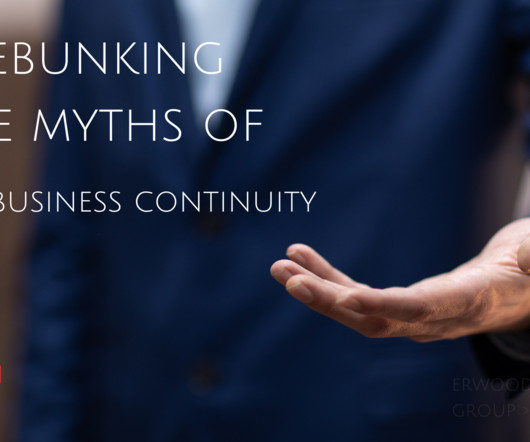All About BIAs: A Guide to MHA Consulting’s Best BIA Resources
MHA Consulting
MARCH 9, 2023
We write a lot about BIAs in our blog and ebooks, and no wonder: the business impact analysis is the cornerstone of a sound business continuity program. This high level of interest in BIAs is completely warranted since the BIA is the lynchpin of a good business continuity management (BCM) program and hence of a resilient organization.















Let's personalize your content